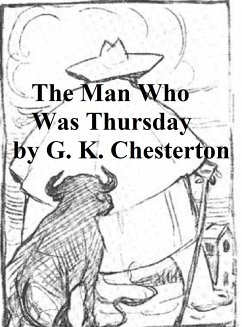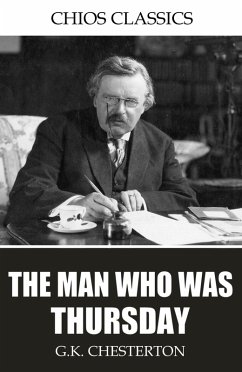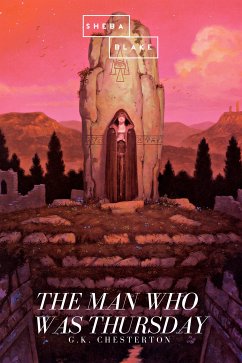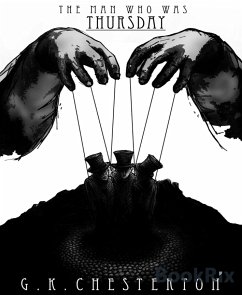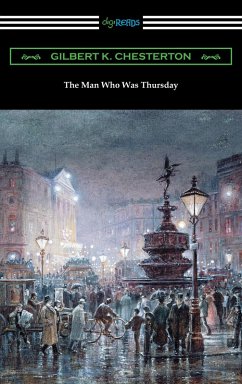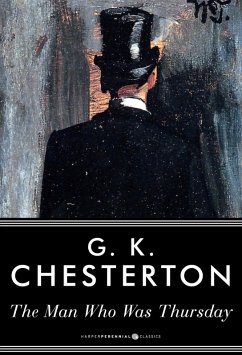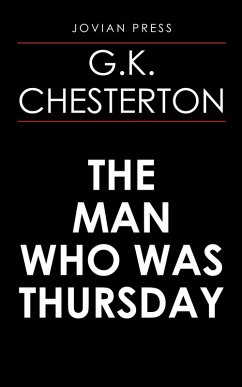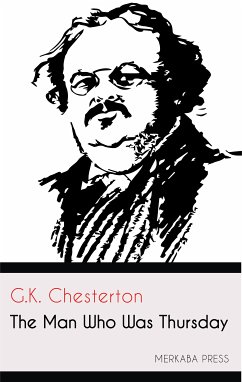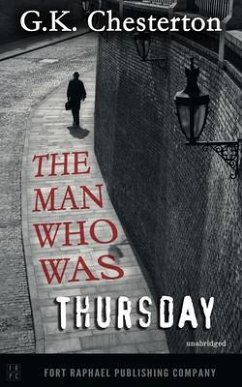
The Man who was as Thursday (eBook, ePUB)

PAYBACK Punkte
0 °P sammeln!
Gilbert Keith Chesterton (1874 - 1936) was an English social and literary critic, author of verses, essays, novels, and short stories. His most emblematic work was The Man Who Was Thursday. The narrative is set at the end of the 19th century in a context filled with anarchist conspiracies and mysteries involving theological enigmas, free will, and the existence of evil in the form of the irrational. The protagonist is Detective Gabriel Syme, a poet committed to the fight against chaos, who was recruited by the anti-anarchist section of Scotland Yard. The Man Who Was Thursday was published to g...
Gilbert Keith Chesterton (1874 - 1936) was an English social and literary critic, author of verses, essays, novels, and short stories. His most emblematic work was The Man Who Was Thursday. The narrative is set at the end of the 19th century in a context filled with anarchist conspiracies and mysteries involving theological enigmas, free will, and the existence of evil in the form of the irrational. The protagonist is Detective Gabriel Syme, a poet committed to the fight against chaos, who was recruited by the anti-anarchist section of Scotland Yard. The Man Who Was Thursday was published to great success in 1908. It is a philosophical novel filled with action, adventure, and suspense that continues to captivate readers today, presenting them with paradoxes and moral and theological reflections that make them question themselves with every chapter.
Dieser Download kann aus rechtlichen Gründen nur mit Rechnungsadresse in A, B, BG, CY, CZ, D, DK, EW, E, FIN, F, GR, H, IRL, I, LT, L, LR, M, NL, PL, P, R, S, SLO, SK ausgeliefert werden.




